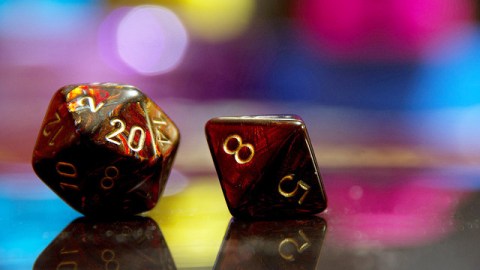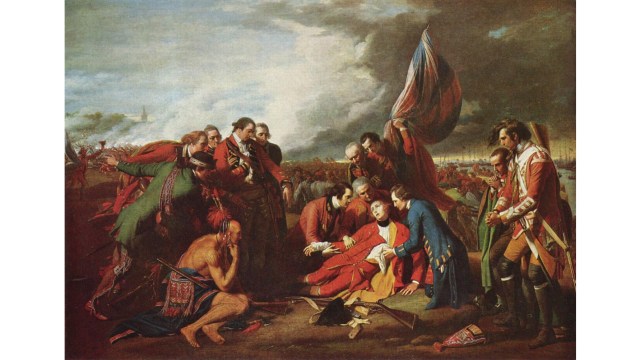Want to Find Yourself? Try Playing Dungeons & Dragons.

Video games wish they had the same creative freedom as Dungeons & Dragons. Gamers may be able to create their gender, race, and class, but they’ll never be able to grow and test their personalities in the way tabletop role-playing games allow.
“Ultimately, [D&D] tantalizes its players with what seems like a very American promise: that each of us can be the master of our own dungeon,” Jon Michaud writes for The New Yorker.
Director Jon Favreau once said that he credits Dungeons & Dragons for giving him “a really strong background in imagination, storytelling, understanding how to create tone, and a sense of balance.”
When asked what his cultural influences were, The Atlantic blogger Ta-Nehisi Coates explained to Big Think that “the first things that taught [him] about how words were beautiful [were], hip-hop and Dungeons and Dragons.”
The tabletop isn’t dead. In fact, in some places it rarely accumulates any dust. Granted, the board game business as a whole isn’t quite as lucrative as the video game industry, but it rakes in around $880 million a year in America and Canada alone. The industry has seen growth and part of that is thanks to demystifying the culture surrounding D&D. It has also laid the foundation for others to innovate and grow tabletop games.
A few months ago, Caroline Hobbs put her story-driven role-playing game, Downfall, up for funding on Kickstarter and was met with a flood of support (in the form of money). The game allows a group of players to build a world at the brink of its demise, while one hero tries to save it.
Hobbs says that “[e]very game is incredibly unique.” The place can be entirely fantastical or based in a contemporary world. Part of the wonder of games like these is being able to connect and share an experience, maybe even work through the frustrations of a modern issue.
Games like D&D have always provided its players a way to explore and act out other personalities. Something I would recommend any teenager struggling to find themselves (i.e., all of them).
Eva Moskowitz explains why geeking-out on games is so important for youth.
Like D&D, it gives players the wireframes to help construct their worlds, but always encourages coloring outside the lines.
Anyone curious about anything geek-related has a number of places where they can go to find out more. There are places like the channel Geek & Sundry, which plays host to a number of events; one being a weekly live stream of voice actors playing Dungeons & Dragons. The team even put together a special package for October with famed D&D player and actor Vin Diesel.
***
Natalie has been writing professionally for about 6 years. After graduating from Ithaca College with a degree in Feature Writing, she snagged a job at PCMag.com where she had the opportunity to review all the latest consumer gadgets. Since then she has become a writer for hire, freelancing for various websites. In her spare time, you may find her riding her motorcycle, reading YA novels, hiking, or playing video games. Follow her on Twitter: @nat_schumaker
Photo Credit: Scott Swigart/Flickr





